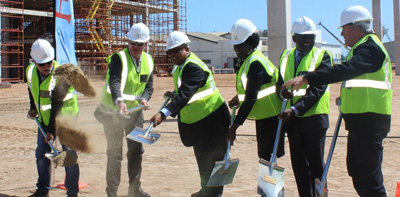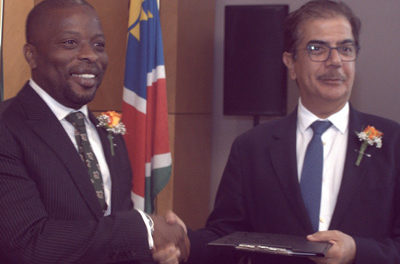
Clean water in the North

A dam in Ondangwa
The aim of the project is to contribute to an improved health status through increased and sustained access to basic water and sanitation facilities as well as improved hygiene practices in Namibia.
Speaking at the occasion, Sjaak de Boer, attaché rural development EU delegation, said that This project is supported under the Water Facility of the 10th European Development Fund and is managed by the Swedish Red Cross, with its partners, the Namibia Red Cross Society and the Belgium Red Cross. The Namibia Red Cross Society will be implementing the project over a 4 year period. The total budget of the project is around N$ 8.5 million; of which the European Union is contributing N$ 25 million, the Swedish Red Cross N$ 8.4 million and the Belgium Red Cross N$ 5.1 million.
The objectives of this project are in line with the International Federation of Red Cross/ Red Crescent societies’ (IFRC) water and sanitation objectives for Global Water and Sanitation Initiatives (GWSI). The GWSI emphasise community participation in project design and implementation, low cost and low- technology options where appropriate, and advocates for the most vulnerable. The project is line with the Water Supply and Sanitation policy of 2008 and it is implemented within the framework of the National Sanitation Strategy 2011-2015. The project will also contribute towards ensuring environmental sustainability and achieving vision 2030.
“This project aims to empower communities by giving them the tools, information and resources they need to become more resilient. Volunteers are the lifeblood of the Namibia Red Cross Society and the success of this project will rely on community acceptance and participation, led by a force of volunteers trained to promote improved hygiene practices in their communities,” said Namibia Red Cross Society Secretary-General Dorkas Kapembe-Haiduwa.














































